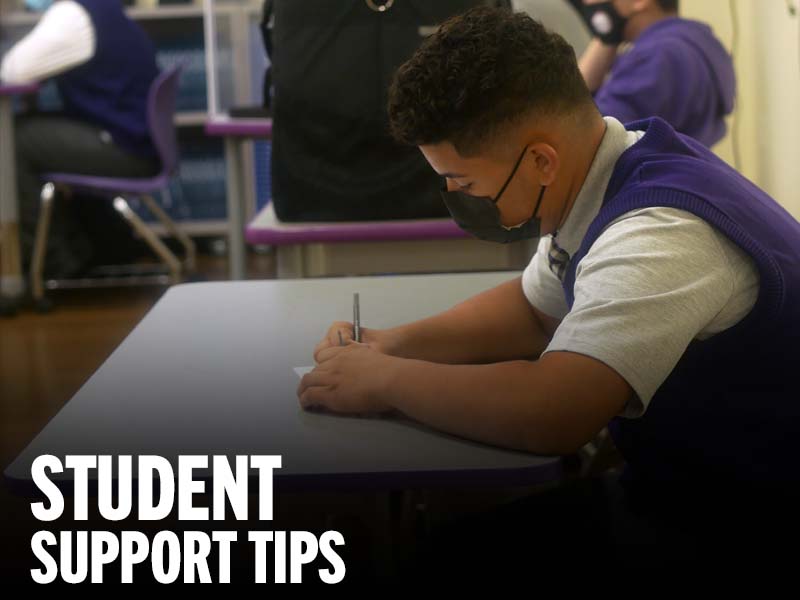From Mr. Holloway
Extended time on assignments and tests is arguably the most common accommodation given to scholars with disabilities. There are a number of reasons why children with disabilites require extended time, including challenges with task initiation or completion, test-taking anxiety, and poor time-management skills. Many of these challenges are rooted in poor executive functioning skills, which control and regulate our ability to initiate, plan and organize our thoughts and solve problems. So is extended time alone enough to address the challenges faced by these scholars? Should we, as teachers, also teach the skills necessary to improve the rate of work completion, as well as the quality of work. Here are some strategies:
- Move from the external to the internal
Seat changes, altering tasks, or providing cues, supervision, and encouragement makes a difference. - Use your scholar’s innate drive for mastery and control
Ensure routines and schedules are established. Practice difficult tasks in increments, increasing demands gradually, and using negotiation rather than authority. - Modify tasks to match work capacity
Make the first step of a task easy and immediately follow with a (verbal) reward. Gradually increase the effort they must expend to achieve the reward, either by increasing the task demands or by increasing the amount of time expected on task before earning the (verbal) reward. - Teach deficient skills
Intentionally teach the skills a scholar lacks. Define the skill, then select a task with which to teach it. Outline the steps required to complete the task, and provide ongoing modeling, cueing, support, and supervision until the task can be performed on their own. - Provide the minimum support necessary for success
Determine how far the scholar can complete a task without help and then intervene. Offer enough support (physical or verbal, depending on the task) to get over the challenge and move toward success. - Provide supports and supervision until success is achieved
Mastery does not come all at once; it’s a process that requires teacher feedback along the way. - Gradually cut back support, supervision, and incentives
Remove supports gradually as your scholar achieves mastery of new skills. Don’t cue or prompt when not needed. Likewise, don’t go from all to nothing too abruptly.
The long-term goal is to be able to send all scholars out into the world armed with a set of skills they can use to tackle problems on their own.
Article links:
https://www.smartkidswithld.org/getting-help/the-abcs-of-ieps/extended-time-right-child-adhd/
https://www.smartkidswithld.org/getting-help/executive-function-disorder/principles-for-improving-executive-skills/

